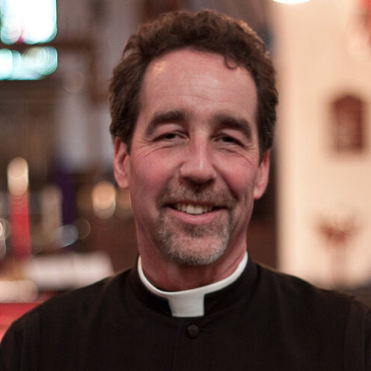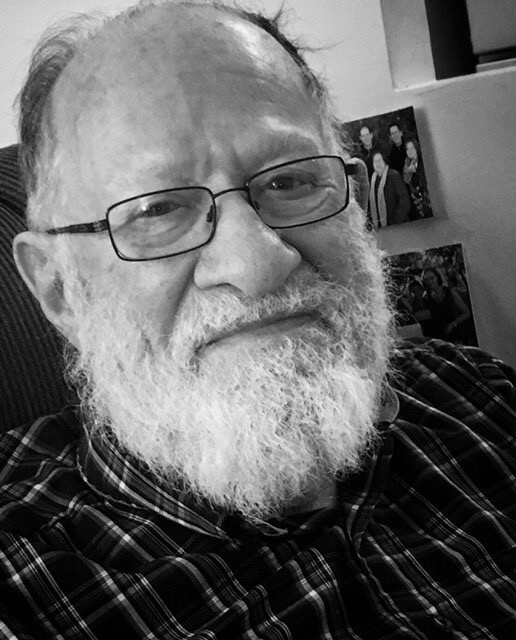In some Christian traditions, the fourth Sunday of Eastertide is known as Good Shepherd Sunday, and the Psalm reading for the day is, appropriately, Psalm 23.
Years ago, Jamie Howison and I co-authored a book of reflections on the various psalms I have set to music. Jamie wrote a particularly moving piece on Psalm 23 that recalls a rather profound experience he once had with my father. I’ve reprinted a slightly edited version of his story below followed by a new video of my version of Psalm 23 that I recorded last week. -Steve Bell


Jamie Howison is a longtime friend and co-writer with me on several songs. Jamie has authored several books including God’s Mind in that Music: Theological Explorations Through the Music of John Coltrane. He is also the founding priest and Rector of st. benedict’s table in Winnipeg where Nanci and I go to church.
Without a question, Psalm 23 is one of the most well-known and highly sentimentalized of all the psalms. For all its pastoral prettiness, however, the psalm has a quality of resilient, almost rugged faith. The language is evocative, but what it finally evokes is a sense of the steadfastness of faith in a God who is faithful even in the darkness.
Walter Brueggemann writes,
The reason the darkness may be faced and lived is that even in the darkness, there is One to address. The One to address is in the darkness but is not simply a part of the darkness (John 1:1-5). Because the One has promised to be in the darkness with us, we find the darkness strangely transformed, not by the power of easy light, but by the power of relentless solidarity.
Walter Brueggemann, Spirituality of the Psalms, p. 13
This is precisely what the psalmist knows, such that whether in green pasture or darkest valley, there is trust in that solidarity.
A Painful Reality
Which leads me to recall a story from a time in my life and ministry that can only be described as one of deep disorientation. A former pastor of the parish I was ministering in had been brought up on charges related to the sexual molestation of a dozen complainants. The parish community found itself wrestling with very difficult and painful questions. The fact that he had been gone from the community for more than a dozen years (having been dismissed from active ministry due to an earlier conviction) hardly removed the sting as we now had to face the reality that one of our own had been a serial offender. Add to this situation the general rule that “trauma triggers trauma,” and these were hard days indeed.
I contacted Steve’s father, Dr. Alf Bell, to arrange a conversation. Alf has extensive experience and expertise working with convicted sexual offenders and was the ideal resource for sorting out pastoral strategies. We met in a quiet restaurant and spent the first forty-five minutes going over some of the literature on working through such issues. At the end of a very helpful, though largely theoretical conversation, Alf pushed back from the table and began to speak of my personal need for spiritual resources.
“I know that some people find writers like John of the Cross to be great spiritual helps, but I always turn to the Psalms. I particularly like the 23rd Psalm, which I think comes right out of David’s experience as a shepherd. Why don’t you just close your eyes, Jamie, and let me talk to you about this psalm.” And so right there in that restaurant, I closed my eyes and began to listen.
Expressions of Knowing
“Imagine yourself as one of the lambs, living with the flock in good green pasture land, with fresh clear water in the nearby stream. Life is good there, and the shepherd is your guarantee of safety.
“Weeks pass, though, and you notice that the grass is drying, and the stream is becoming muddy and warm. The rains aren’t falling, and things aren’t quite as good. The grass is prickly in your mouth, and the water fails to quench your thirst. And one day, the shepherd gets up, takes staff in hand, and begins to move the flock. Up the hills, you all move, higher and higher toward a mountain pass. The climb is steep, and you begin to lose your enthusiasm for this life. A couple of times you lag behind the flock, and when you do the shepherd is there to push you on with his staff. When you are so tired and you don’t even know where you’re headed, that staff against your flank just hurts.
“By the time you reach the pass, it has become dark. The fading sunlight is lost behind rock walls, and it is cold and miserable. Tired and despondent, you lie down, thinking it might be better to just stay there and die.
“It is at this point that an old sheep comes over to talk to you. He has made this trek before. He knows that on the other side of the pass is another valley, and in that other valley the grass will be better and the spring-fed stream will be running. He has learned that this shepherd knows what he is doing, and that the prods and pushes of his staff are expressions of that knowing.
“The old sheep speaks only two simple sentences. ‘I’ve done this before; keep moving.’ And then, ‘Just stay close to the shepherd.’”
Counsel of an Old Sheep
There was a long pause, and I slowly opened my eyes. Alf’s eyes were dancing with light. “I’m the old sheep, Jamie. Just stay close to the shepherd.”
All through that challenging time, colleagues would ask if I was seeing a counsellor, or if I had a spiritual director. “No,” I would say, “I’ve got something better I’ve got an old sheep.”


The above is excerpted from the book “I Will Not Be Shaken: A Songwriter’s Journey Through the Psalms” by Steve Bell and Jamie Howison. For more info, or to purchase, click HERE…
________________________________________
If you found this blog meaningful, perhaps you might toss me a couple of bucks to help support my work. Thanks! 🙂
 Buy me a coffee
Buy me a coffee